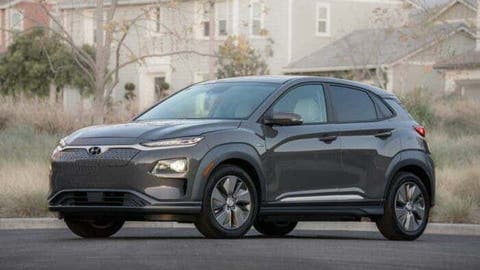The European Commission President, von der Leyen announced at the annual EU State of the Union address in Strasbourg, that the European Commission has launched an investigation into the Chinese government’s support for electric vehicle (EVs) brands. The probe aims to prevent a flood of cheap imports of Chinese EVs into the EU market. This could distort the market and harm European brands. The EU is checking whether it needs to impose tariffs to protect itself from Chinese electric car brands that benefit from state subsidies.
Von der Leyen said: “Europe is open to competition, but it does not engage in a race to the bottom.” Von der Leyen said that the EU must clearly look at the risks it faces. “Take the electric vehicle industry, for example. This is a sector that is vital to the clean economy and has huge potential in Europe, but the global market is now flooded with cheaper Chinese electric vehicles, whose prices are artificially artificially driven by huge state subsidies. Depressed,” she said. “This distorts our markets and just as we don’t accept distortions from within the markets, we don’t accept distortions from outside.”
Von der Leyen said the EU must protect itself from unfair practices but also stressed the importance of maintaining open communication with China.
Background
China is the world’s largest market for EVs. The Chinese government has been providing subsidies to domestic EV makers to promote the use of clean energy cars. However, the EU has accused China of providing unfair subsidies to its EV makers. They claim that this could give them an unfair advantage over European brands.
Chinese brands already produce pretty cheap electric cars. If the brands that enjoy the Chinese government subsidy flood the European market with their products, then European Brands may not be able to compete with them. This will take away the health competition that the EU is trying hard to protect.
Gizchina News of the week
The Investigation
The EU’s probe will focus on the Chinese electric car subsidies which the government gives to Chinese EV makers. The probe will determine whether these subsidies are distorting the EU market and harming European brands. The probe will be conducted by the European Commission, which will gather evidence from Chinese and European EV makers. The EU will also talk to some relevant stakeholders to get all the data that it needs. Also, the probe will likely take up to 15 months. Thus, we do not expect the result of the probe anytime soon. The European Commission will make a final decision on whether to impose anti-subsidy duties on Chinese EVs.
Implications
If the EU finds that China is providing unfair subsidies to its EV makers, it could impose anti-subsidy duties on Chinese EVs. This would make Chinese EVs more expensive in the EU market. It would also reduce their competitiveness and protect European brands.
However, if the EU finds that China is not providing unfair subsidies to its EV makers, it could lead to a further increase in Chinese EV imports into the EU market. This could benefit European users, who would have access to cheaper EVs. However, it could harm European brands, which would face increased competition from Chinese EV makers.
Final Words
The EU’s probe into Chinese EV subsidies is an attempt to protect European brands from unfair competition. It also aims to prevent a flood of cheap imports of Chinese EVs into the EU market. The probe will determine whether China is providing unfair subsidies to its EV makers and whether this is distorting the EU market. The outcome of the investigation could have significant implications for both Chinese and European EV makers, as well as for European consumers.
